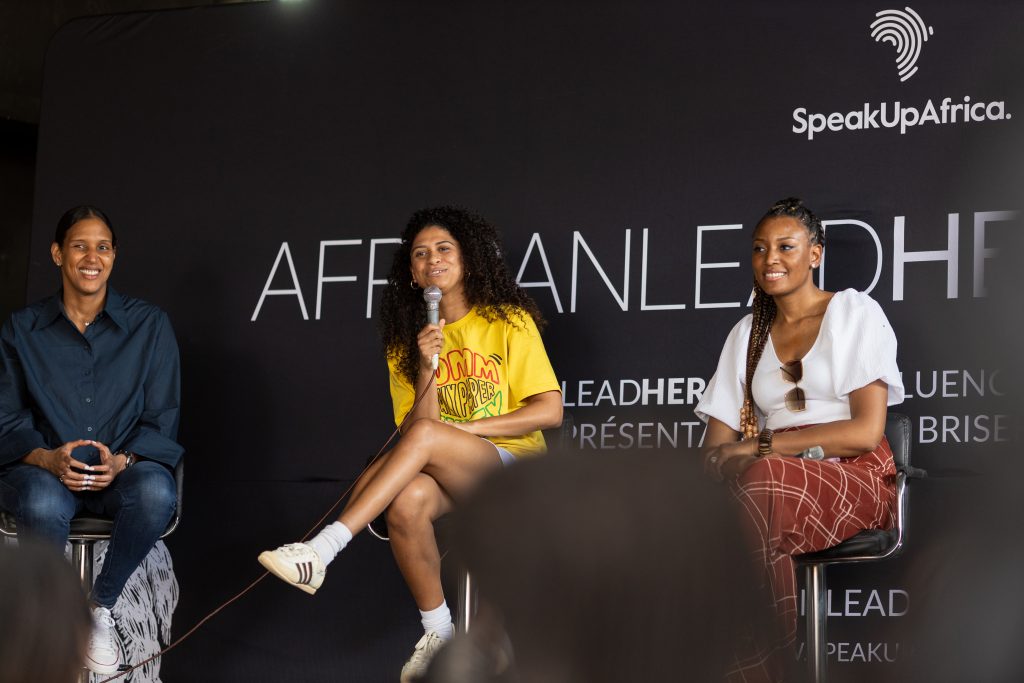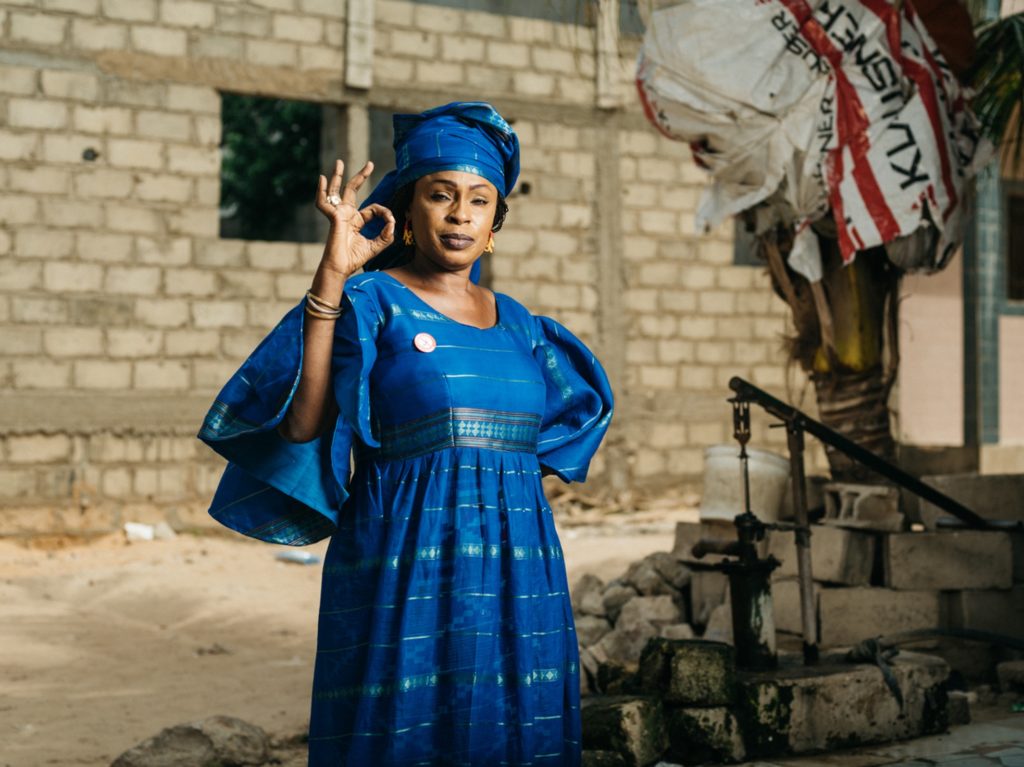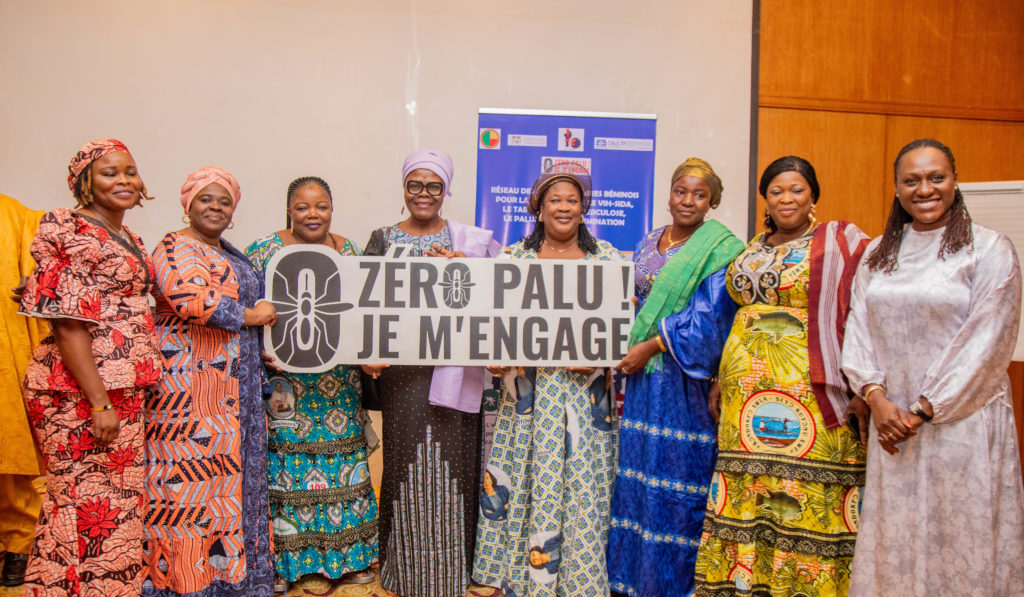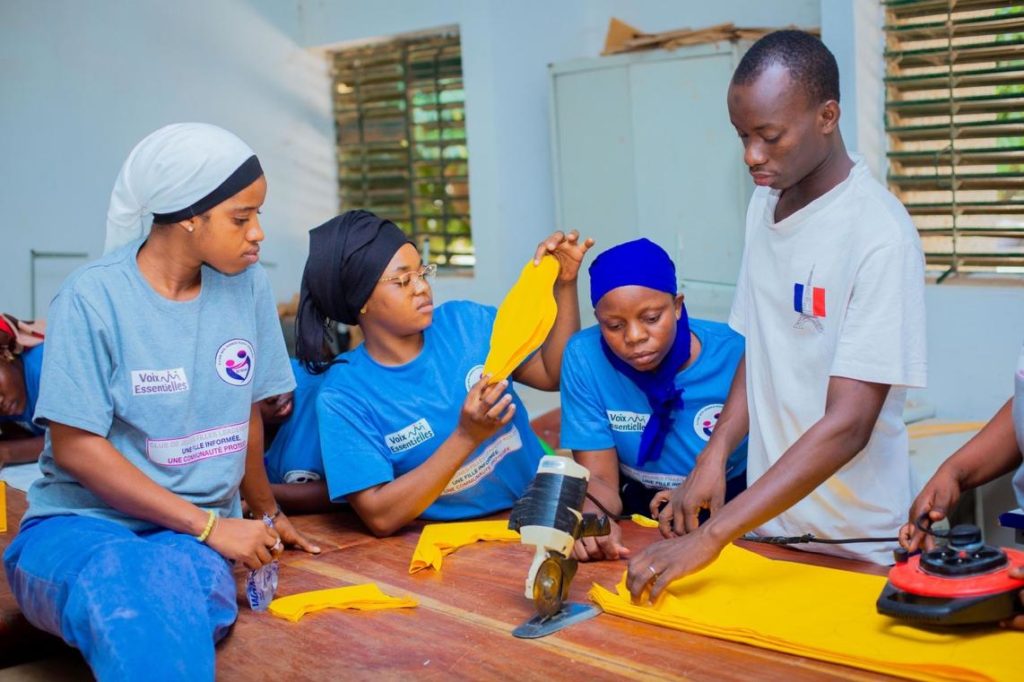Defining a clear strategy to gender and social inclusion: Our 1st ever African LeadHERs Forum

Ouagadougou, Abidjan and Dakar, March 10, 2022 – On the sidelines of the Generation Equality Forum, in June 2021, Speak Up Africa launched its “African LeadHERs” initiative, which aims to promote and amplify the voices and actions of African women and girls who strive to achieve gender equality. African LeadHERs promotes a new mindset to think and act creatively to drive action through innovation and inclusion of women and girls in decision making spaces in order to achieve a fairer and more equal world.
To commemorate International Women’s Day, Speak Up Africa organized its first ever African LeadHERs Forum. The event took place March 7th and 8th and convened more than 260 participants online & in person in Burkina Faso, Côte d’Ivoire and Senegal including 26 experts and champions through 6 activations. Day one of the Forum focused on the Voix EssentiELLES initiative launched by Speak Up Africa in 2021 and co-funded by the Global Fund and the Fondation CHANEL.Through this initiative, female-led grassroots and community-based organizations have an opportunity to secure a grant of up to US$10,000, or up to XOF 5 million, to the entities or the organization leaders.
« We are thankful for organizations like Speak Up Africa, which support us by providing funding, technical support, and capacity-building opportunities such as the workshop on storytelling »
Fatimata Sy, President of the Senegalese Association for the Future of Women and Children (ASAFE) and a beneficiary of the Voix EssentiELLES fund in Senegal.
The cost of gender discrimination and inequality has myriad ramifications. High incidences of gender discrimination tend to result in correspondingly higher percentages of human rights violations such as female genital mutilation (FGM) and sexual and gender-based violence (SGBV). FGM, a pervasive violation of bodily corporal rights, is estimated by UNICEF to have affected 200 million women across thirty countries.
Financial literacy is another challenge a lot of societies face. Advancing financial literacy reduces the number of the unbanked, which, in turn, helps empower women – by putting them on the pathway to financial independence. Yet financial literacy can help further empower women and mothers, by delaying the age at which girl children are married off. Often, girls are pressured to drop out of school and marry at very young ages, and are deterred from pursuing further education. In Ivory Coast, the Voix EssentiELLEs workshop focused on the power of financial inclusion of women to break the bias facilitated by Mariam Djibo, General Manager of Advans Côte d’Ivoire, a microfinance institution, while in Burkina Faso, beneficiaries of the project learned via Harouna Drabo, journalist and fact-checker the power of communication and story-telling. Day one of the Forum concluded with Nadia Mensah Acogny on the art of speaking publicly while emphasizing on the importance of self-condidence, “No one knows how to talk about your issues and your solutions better than you do”, she concluded.
« Empowering women is a matter of economic, legal and moral common sense » …
Jean-Philbert Nsengimana, Africa Managing Director of the Commons Project Africa Managing Director of the Commons Project during our high-level online conversation on women-led innovation in Africa
« Achieving sustainable health and gender equality on the continent »
on day two of the African LeadHERs Forum. Organized in partnership with the International Federation of Pharmaceutical Manufacturers (IFPMA), with whom we launched the Africa Young Innovators Award in 2020 and the Women Innovators Incubator in September 2021. The Incubator aims to address the blatant gaps in female-led innovation and tackle additional hurdles they have to face to help take their business ideas from concept to implementation.
Featured significantly in the forum was the importance of owning one’s narratives, a message also underscored by Speak Up Africa in their work. The second day of the Forum also discussed ways to advance gender mainstreaming, while highlighting diversity.
« Initiatives such as the African LeadHERs Forum help underscore the importance of positive movements »
« More often than not, women are conditioned to imbibe harmful messaging about their place in society, both at work and at home. Women must see themselves represented and empowered in any room they walk into. »
Ysaora Thibus, fencer and 2021 team Olympic silver medalist on the importance of representation and sports to achieve gender equality.
In 2020, Ysaora created Essentielle stories to support the narrative around women in sports by providing them with a platform to express themselves and tell their own stories. Alongside Ysaora during the final event of the Forum held under the theme « Sport, leadHERship and influence: the power of representation to break bias”, Diandra Tchouatchang, French basketball player and 2021 team Olympic silver medalist as well and Cassandra Ngbolonga, professional choregrapher, Founder of Beafrika and Instagram sensation. The panel and afternoon activities concluded with the painting of an African LeadHERs fresco, where the three women engraved their messages on the walls. Rajah Sy, Director of Special Olympics Senegal and Astou Ndiaye, WNBA champion also participated in the discussions in front of 30 young girls and women.
« It is important we focus on celebrating our differences and see them for what they are: strengths. »
Rajah Sy.
During the African LeadHERs Forum, Speak Up Africa launched their Gender and Social Inclusion strategy. The plan, with four strategic orientations and eight operational standards set for gender mainstreaming, details a multi-pronged approach to providing solutions to the most critical issues that African populations face when working to create a more equitable world.
Globally, gender inequity and lack of parity has proven itself detrimental to advancing women’s rights and equality. The cost can be measured across various metrics, including jobs, opportunities, livelihood, and social perceptions.
« Discrimination needs action, as well as awareness raising and acknowledgment. We have identified six key guiding principles and four main strategic orientations that set the tone for our work in advancing gender mainstreaming, »
Yacine Djibo, Founder and Executive Director of Speak Up Africa.
…
« We also established a robust implementation framework, with eight minimum guiding standards. Setting clear, realistic targets makes the plan achievable, and spells out the way that each action matters. »


